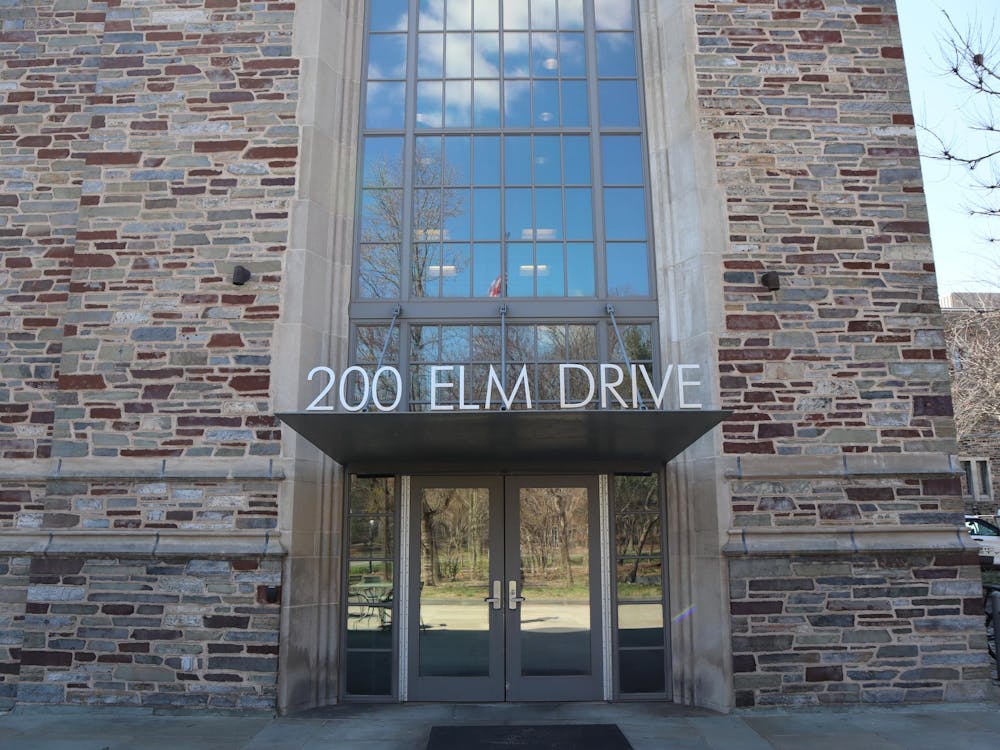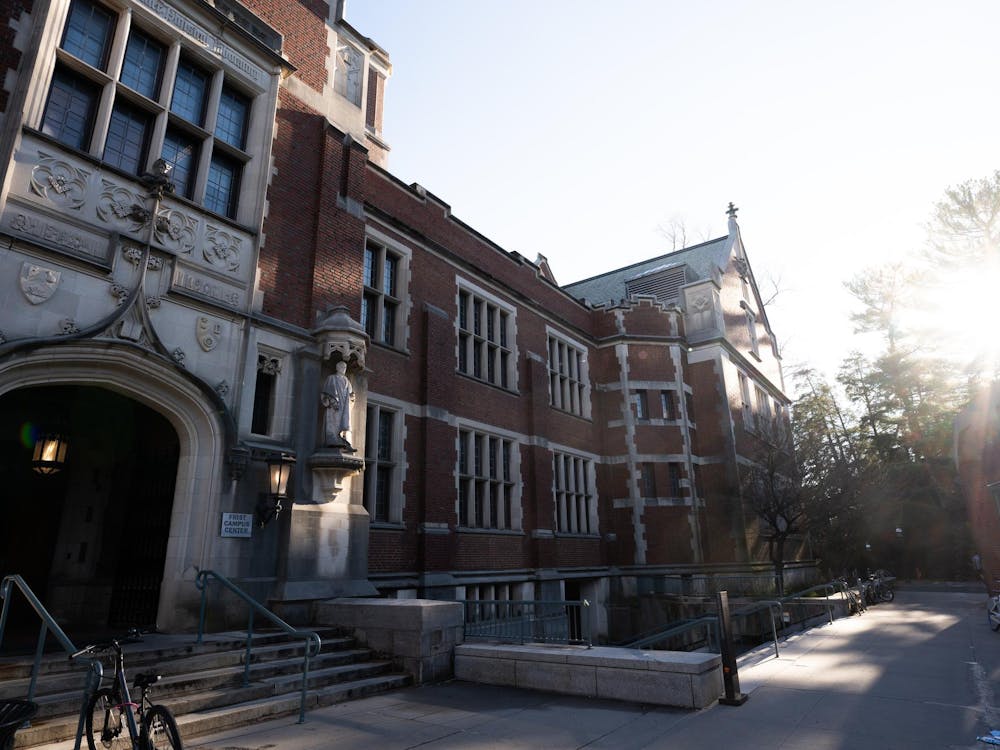The Council of the Princeton University Community discussed graduate student career paths, the Princeton Perspective Project and the Special Task Force on Diversity, Equity and Inclusion at its meetingon Monday.
“Graduate student placement and professional development is an area that’s been increasing in importance,” Dean of the Graduate School Sanjeev Kulkarni said.
The Graduate School has a number of programs for professional development that work in cooperation with the Office of Career Services, the McGraw Center for Teaching and Learning and specific academic departments, he said.
“Since 2008, our appointments for graduate students and walk-in students has increased 63 percent,”Associate Director for Graduate Student Career Services Amy Pszczolkowski said.“They come to see us for both academic and non-academic career situations.”
Roughly 30 specific professional development skill programs are currently offered for graduate students,Pszczolkowski noted,adding that Career Services’ Graduate Student Advisory Board wants to further explore ways in which it can be of assistance.
Students pursuing non-academic jobs still receivedisproportionately low support, philosophy professor Sarah-Jane Leslie said.
“When we actually look at the numbers, though, at most we place about 50 percent of our students into academic jobs,” she said. “We need to ask the question of how we can best support our graduate students and not have that answer be how to place them in academic jobs.”
Placement strategies specific to the economics department include helping students make use of alumni networks and alumni support, economics professor and department placement officer Stephen Redding said.
Mark Esposito GS said that a career symposium for molecular biology graduate students was held this fall to help students secure careers, adding that alumni connections and support for the molecular biology department have been growing.
CPUC members noted there were talks in place to discuss how to improve several facets of the job placement process for graduate students in response to questions from the audience about how best to get placement officers in more departments, how to increase transparency regarding to whom students can reach out for help with career placement and how to convince faculty members to change their mindset regarding not investing energy in students not dedicated to academia.
Former Undergraduate Student Government president Shawon Jackson ’15 and Butler College Director of Student Life Alexis Andres then led a discussion about the Princeton Perspective Project, a new initiative that looks to challenge the culture of "effortless perfection" on campus.
“How do we, as administrators, change the culture and the conversation around failure and setback?” Andres asked. “How do we normalize it?”

The Princeton Perspective Project’s website is home to student testimonials, a list of resources on and off campus and information about campus events such as retreats and speaker series, Jackson said. By December, the website, which only people with University login credentials can access, had over 3,000 unique hits.
“At the highest level, our goal is to eliminate this culture of effortless perfection,” Jackson said.
Students have also submitted poems and drawings to share their stories, Andres noted.
The Princeton Perspective Project used social media, traditional media and meetings with University administrators to raise awareness of the project, and is now working on collecting more stories and creating more opportunities for dialogue, Jackson said.
“This has truly been a collaborative effort,” he said. “We do hope that by tapping every aspect of the community that we can really get the word out there.”
The meeting concluded with University Provost David Lee GS ’99 providing an update on the Special Task Force on Diversity, Equity and Inclusion and its working groups.
“Since [December] we have set up a number of groups: a steering committee and three working groups,” Lee said. “We are aiming to produce a report by May.”
Working groups are currently researching topics that include the accessibility of the University’s policies and procedures for addressing racial bias, the existing data about demographics and how it can or should be shared, the experiences of individual students in regards to whether bias is occurring on campus, the resources that exist for students who feel like they are experiencing bias and the skills that are needed to work on addressing bias.
“We’re planning to start a process where we can gather more information from focus groups to get more texture behind some of the concerns we’ve heard on campus,” Lee said, addingthat public programming is being planned for the coming months.
Revising discrimination reporting is not a topic the CPUC has discussed, he added.
The University has had mechanisms to address bias in place for years, but it’s important to draw attention to them,Vice Provost for Institutional Equity and Diversity Michele Minter said.
People who think they are experiencing discrimination or bias should start by consulting a confidential resource — including Sexual Harassment/Assault Advising, Resources & Education, the Ombuds Office, a chaplain or Counseling and Psychological Services — or to make an official complaint, they should go to her office or use the EthicsPoint system for anonymous reporting, she said.
University community members should also visit the “Inclusive Princeton” website, she added.
U-Council chair Zhan Okuda-Lim ’15 askedhow the University determines delays and closures, why announcements are made at6 a.m.and whether the University would consider an earlier announcement time during a question and answer period during the meeting.
Decisions are made by a group with representation from a dozen work groups on campus who have members stay up through the night to make a decision, University Executive Vice President Treby Williams ’84 said.
“We’re willing to stay up all night to make a more accurate call the following day,” she said.
The meeting took place at4:30 p.m.in Betts Auditorium.








